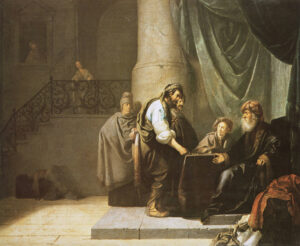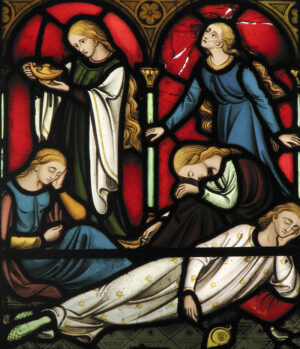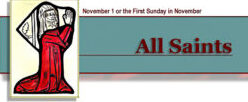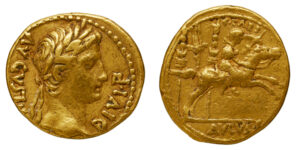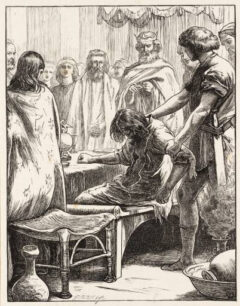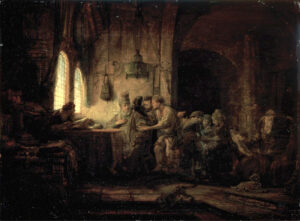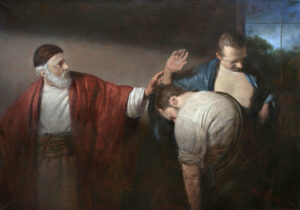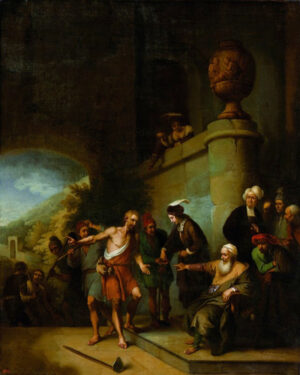Reign of Christ
READINGS FOR THE COMING WEEK
- First reading and Psalm
- Ezekiel 34:11-16, 20-24
- Psalm 100
- Alternate First reading and Psalm
- Ezekiel 34:11-16, 20-24
- Psalm 95:1-7a
- Second reading
- Ephesians 1:15-23
- Gospel
- Matthew 25:31-46
The gospel from Matthew:
Once more Jesus spoke to them in parables, saying: “The kingdom of heaven may be compared to a king who gave a wedding banquet for his son. He sent his slaves to call those who had been invited to the wedding banquet, but they would not come. Again he sent other slaves, saying, ‘Tell those who have been invited: Look, I have prepared my dinner, my oxen and my fat calves have been slaughtered, and everything is ready; come to the wedding banquet.’ But they made light of it and went away, one to his farm, another to his business, while the rest seized his slaves, mistreated them, and killed them.
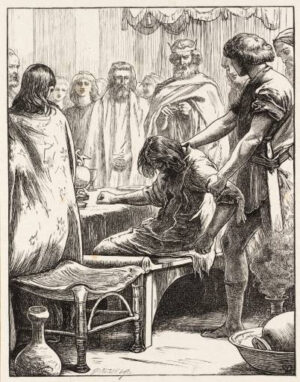
From “Illustrations to ‘The parables of our Lord'”,
1864 Millais, John Everett,
https://diglib.library.vanderbilt.edu
The king was enraged. He sent his troops, destroyed those murderers, and burned their city. Then he said to his slaves, ‘The wedding is ready, but those invited were not worthy. Go therefore into the main streets,and invite everyone you find to the wedding banquet.’ Those slaves went out into the streets and gathered all whom they found, both good and bad; so the wedding hall was filled with guests.
“But when the king came in to see the guests, he noticed a man there who was not wearing a wedding robe, and he said to him, ‘Friend, how did you get in here without a wedding robe?’ And he was speechless. Then the king said to the attendants, ‘Bind him hand and foot, and throw him into the outer darkness, where there will be weeping and gnashing of teeth.’
For many are called, but few are chosen.”


